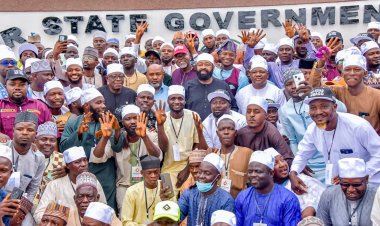Federal Government Defends Ban on Under-18 Students Writing SSCE
The Federal Government of Nigeria has defended its decision to ban students under 18 from taking the Senior School Certificate Examination (SSCE), effective from 2025.

The Federal Government of Nigeria has defended its controversial decision to prohibit students under the age of 18 from taking the Senior School Certificate Examination (SSCE), stating that parents are hastening their children's education process. This policy will take effect from 2025, as announced by Minister of Education Tahir Mamman in July.
During an Inter-Ministerial Press Briefing in Abuja, Mamman reiterated that the decision aligns with established laws such as the Universal Basic Education Act and the Minimum Standards Policy Act, which set age limits for each educational level since their establishment in 1993. “A child is expected to enter school at six years of age, complete six years of primary school, three years of junior secondary, and three years of senior secondary,” Mamman stated.
The Minister expressed concerns over parents who enroll their children in school too early, often bypassing crucial educational stages. He emphasized that allowing children to complete school at a young age is counterproductive, asserting that adequate preparation is necessary for students to either pursue higher education or acquire employable skills post-secondary school.
Mamman highlighted that the current curriculum requires time for students to develop academically and gain the necessary skills. “The policy is designed to ensure that by the time students graduate from senior secondary school, they will either be ready for tertiary education or equipped with employable skills,” he added.
The announcement has sparked significant backlash from parents and educational stakeholders who argue that the decision is restrictive and unjust. However, the government maintains that this policy is ultimately beneficial for the country's educational landscape, aiming to enhance the quality and preparedness of students as they transition from secondary education.
This ban on under-18 students writing the SSCE aims to align educational practices with established laws, ensuring a well-rounded and adequately prepared student population for the future.

 Chris Oyeoku Okafor
Chris Oyeoku Okafor 



